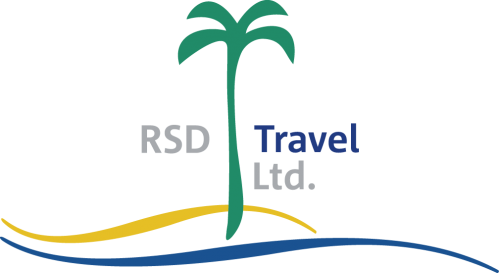Information on Sri Lanka
Comparison of temperatures
| Jan | Feb | Mar | Apr | May | Jun | Jul | Aug | Sep | Oct | Nov | Dec |
| Colombo | 31 | 32 | 32 | 32 | 31 | 31 | 31 | 30 | 30 | 30 | 30 | 31 |
| London | 6 | 8 | 9 | 11 | 15 | 20 | 21 | 20 | 19 | 15 | 10 | 7 |
General note:
Below is an information overview. The conditions of entry, as well as the political and health situation, can change anywhere in the world at any time. We therefore recommend checking before your trip. Please check the website of the Foreign Office (www.gov.uk) before your departure.
Location:
Sri Lanka is an island in the Indian Ocean, south of India.
Form of government:
Unitary presidential republic with a parliamentary democracy.
Capital city:
Official: Sri Jayewardenepura – Kotte (seat of government), de facto: Colombo
Religion:
68% Buddhist (Theravada – Buddhism), 15% Hindus, 9% Muslims, 7% Christians, 1% others
Language:
Official languages are Singhalese and Tamil; English is the lingua franca.
Climate:
There is a tropical humid-hot monsoon climate. Milder in altitudes and near the coast.
Electricity:
230 V alternating current, 50 Hz. An adapter is required.
Local time:
The difference between local time and GMT is +5:30 in relation to standard time (during the winter). As there is no changeover to summer time, the time difference during the summer is +4:30 hours.
Phone calls:
The dialing code 0044 (+44) needs to be added to make calls to the UK. The dialing code 0094 (+94) needs to be added when calling Sri Lanka from the UK.
Country and people:
Behaviour that could be interpreted as religious defiance is punished by the police, including detention for several days. It is forbidden to be photographed with your back to a Buddha statue. Disrespectful photos of religious motifs can lead to heavy fines and even imprisonment. Photographing the so-called „Cloud Girl frescoes“ at Sigiriya Rock is prohibited. Failure to comply with this prohibition may result in heavy fines and confiscation of the camera by the Sri Lankan police authorities. Photographing military installations is also prohibited. Temples may only be entered with shoulders covered and trousers or skirts reaching below the knees. Do not display clothing or tattoos with Buddhist motifs as they may be perceived as denigrating Buddhism. Make sure you are allowed to take photographs or ask for permission. Be sure to follow the instructions and regulations at Sri Lankan cultural sites.
Entry requirements for British citizens:
British citizens require a visa to travel to Sri Lanka. This can be requested online via the official Website https://www.srilankaevisa.lk/. Tourist visas are valid for 6 months with 60 days stay limit. Although it is possible to obtain a visa upon arrival in Sri Lanka, we do not advise this since it can delay the arrival process. For the latest visa requirements, visit https://srilankahc.uk/. We advise taking a copy of the eVisa approval with you when you travel. Please note that staying in the country without a valid visa is a criminal offence and punishment varies from fines to prison and deportation. Your ‚British citizien‘ passport must be valid for 6 months from the date of your arrival in Sri Lanka. Citizens of other countries are requested to contact the British High Commission in London to find out the entry requirements applicable to them. Whilst we endeavour to provide guidance where necessary, we can not be responsible for any problems encountered (whether at any point of entry or elsewhere) in the event that passport and visa requirements are not satisfied.
Tour guides:
Your expert tour guides will be able to provide you with detailed information about the country, people, history, culture, etc., and offer advice and assistance for organising your trip. They can also help with room allocation and look forward to welcoming you with initial information. Here you will find out all you need to know and useful information about the trip. We have put together a varied programme including numerous highlights, enabling you to experience the culture and diversity of landscape that Sri Lanka has to offer, and learn all about the country and its people.
Additional packages:
Although your trip already includes a comprehensive package, you also have the option of choosing added extras. We recommend booking the following packages:
Half board: The package includes 12x dinner as buffet or 5 course menu: only £ 199* per person.
Cultural package: The package includes the three excursions to the „World Heritage site of Polonnaruwa“, „Panoramic train journey through the highlands of Sri Lanka“ and the „Safari in Udawalawe National Park“: only £ 189* per person.
* Package prices may vary when booking on site.
Currency:
Sri Lankan Rupee (LKR). Exchange rate (July 2024): 1 GBP = 392,64 LKR; 1 LKR = 0,0025 GBP.
Banks/credit cards:
Withdrawing cash from ATMs and paying with credit cards are common, but for more remote regions and smaller shops it is advisable to take cash with you. Cash may only be exchanged at authorised points (e.g. airport), banks and hotels, which confirm the exchange on a form. In Sri Lanka, there are often cases of credit card fraud. It is therefore advisable to use cash for the majority of your purchases. To prepay for potential hospital or doctor costs, it is often necessary to present a credit card even if valid overseas health insurance exists. You should therefore always carry your credit card with you. Foreign bank cards cannot be used in Sri Lanka.
Customs regulations:
The import and export of national currency is not permitted for tourists. The carrying of foreign currency is unlimited, but declaration is required for amounts exceeding 15,000 USD. Foreign currency can be exported up to a value of 10,000 USD, if it was declared upon entry. It is not permitted to import foreign tobacco goods. It is forbidden to import goods that are manufactured from protected animal and plant species. The export of antique goods (all objects older than 50 years) requires official authorization. It is strictly forbidden to import and export weapons and drugs.
More extensive customs information about importing goods can be obtained from the embassy of the country you wish to enter. Only the embassy can provide you with legally binding information.
Important: If you are travelling to Great Britain from outside the UK, your personal allowances mean you can bring in a certain amount of goods without paying tax or duty. If you go over your allowances you must declare all your goods and pay tax and duty on all the goods in that category. Please inform yourself about the current customs regulations: www.gov.uk/bringing-goods-intouk-personal-use/arriving-in-Great-Britain.
Country-specific safety and security:
Since the terrorist attacks on churches and hotels in Colombo, Negombo and Batticaloa on Easter Sunday 2019, which resulted in numerous deaths and injuries, including foreigners, the security situation has eased. Following the attacks, security measures were clearly and recognisably tightened and the presence of security forces increased nationwide. In general, curfews can be imposed at short notice and social media can be blocked. Heightened security measures remain in place at the airport.
Crime: Violent crime is most common within local societies. Foreigners, especially women travelling alone or in small groups, are occasionally affected by violent, including sexual, assaults, even in tourist centres. Drugs or knock-out drops are sometimes administered via drinks.
Special criminal law provisions:
The law of Sri Lanka, particularly the criminal law, is also to be observed by foreign tourists in its entirety. Express attention is to be drawn to the provisions for the import and export of foreign currencies, impermissible possession of drugs and weapons as well as sexual offences. Violations, as well as behaviour that can be interpreted as religious defiance, can result in very harsh punishments. Sexual abuse of children (Sexual Offences Act 2003 Section 9) can also be punished in the UK even if the offence was committed abroad.
Medical information:
Vaccination: At least 8 weeks before your trip, check the latest country-specific health advice from the National Travel Health Network and Centre (NaTHNaC) on the TravelHealthPro website (https://travelhealthpro.org.uk/countries). Each country-specific page has information on vaccine recommendations, any current health risks or outbreaks, and factsheets with information on staying healthy abroad. Vaccinations against hepatitis A, dengue fever, hepatitis B, typhoid, rabies and Japanese encephalitis are recommended as travel vaccinations.
Mosquito repellent: Adequate protection against mosquitoes (exposure prophylaxis) is recommended. It includes:
• Wearing long, light clothing impregnated against insects when outdoors
• Rubbing all skin surfaces with a suitable repellent and
• Using impregnated mosquito nets during the night or
• Staying in rooms protected from mosquitoes (fly screens, air conditioning). They protect against other diseases such as dengue fever and Japanese encephalitis.
Diarrhoea and intestinal disorders: Diarrhoea-related illnesses are frequent all year in all areas of the country. Tap water, even in the cities, is not of drinking water quality. It is recommended that only originally packaged drinks in bottles or cans be consumed or that water be boiled thoroughly, filtered or chemically disinfected prior to consumption. Outside of the cities, only drinking water should be used to wash fruit and vegetables or to brush teeth. Raw and unpeeled products should not be consumed. Meat, fish and seafood should also only be consumed if it is properly cooked through. There is an infection risk for salmonella, shigellosis and typhoid, amoebas, lambliasis and echinococcosis throughout the country. General hygiene measures such as regular hand washing or hand disinfection after visiting the toilet and prior to eating as well as keeping flies away from food can reduce the risk of infection.
Geographic and climate-related illnesses: Due to proximity to the equator, it is imperative to ensure good sun protection and sufficient consumption of fluids particularly in relation to older people. Dangerous currents lead to tragic cases of drowning time and again: relevant warnings are to be adhered to on the beaches. Alcohol should not be consumed when bathing or swimming. Beaches contaminated by animal faeces also pose a risk of infection for parasitic skin diseases (Larva migrans cutanea). Sufficient medical care, especially in emergencies or accidents, is not always guaranteed everywhere.
Medical care:
Due to the ongoing economic crisis, there are import restrictions and supply bottlenecks, which also affect the supply of medicines. Especially in rural areas and government institutions, not all medicines are always available. Take any medication you require from the UK with you.
Medical care in the big cities and tourist centres is adequate to good but does not meet European standards in all areas. In Colombo, medical care in specific fields is by all means of a high to a very high standard.
It is strongly advisable to have adequate and valid health insurance coverage including provision for repatriation.
Customers must ensure that they are in good physical and mental health in line with the trip in question. Customers must enquire about the physical mobility and psychological autonomy required for this trip.
All information is subject to change/Last updated: July 2024
back Information & tips
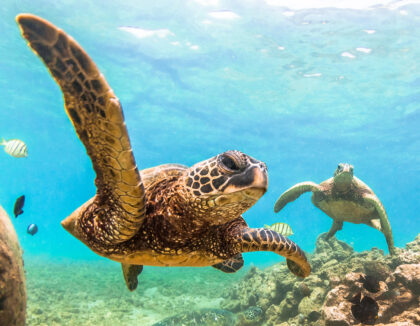 Travel highlights
Travel highlights
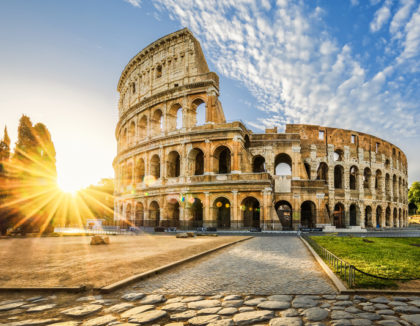 Europe
Europe
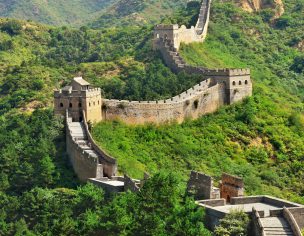 Asia
Asia
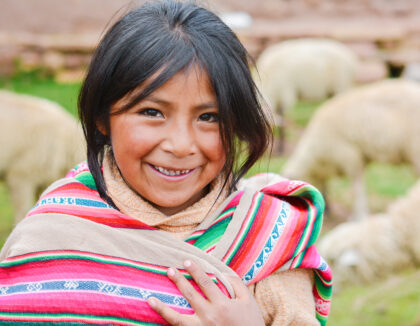 America
America
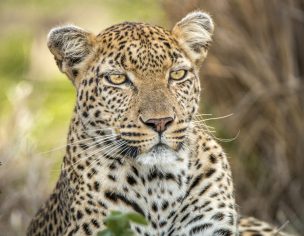 Africa
Africa
